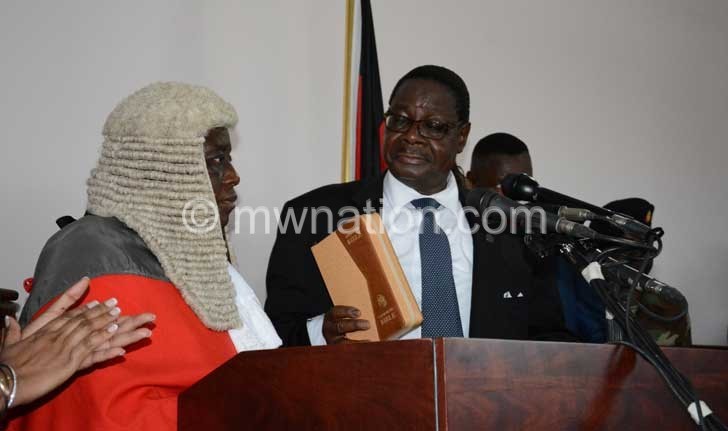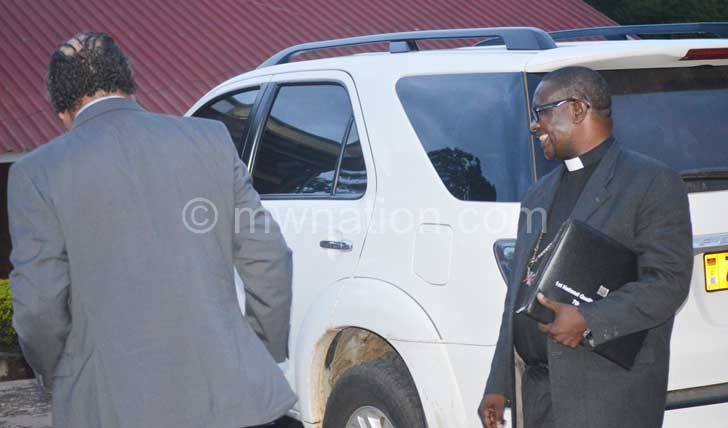Government changes proposed reforms
- MPs’ Recall Provision back
- Swearing in after 15 days, not 30
Government has rejected several recommendations of the Special Law Commission on Electoral Reforms and introduced new provisions, including extension of the 50+1 majority to the election of members of Parliament (MPs) and ward councillors.

The Law Commission had recommended introduction of 50+1 system of electing the country’s President while maintaining the First-Past-The Post system for other elections to enhance legitimacy of the elected Head of State.
In Bills pending tabling, under the banner of Electoral Reforms Bills, and circulated yesterday, government has also re-introduced Section 64 of the Constitution which, before its repeal in 1995, empowered constituents to recall a non-performing or misbehaving MP.
Further, government has also not taken on board a proposal by the Special Law Commission that a President-elect or Vice-President-elect should be sworn in after 30 days and not within 30 days of official announcement of results.
The Bill as circulated has instead proposed deleting the word “within” in Section 81 (3) of the Constitution and substituting with “after 15 days but not later than”.

However, this is a reduction from the 30 days which the commission had put in place within which the President-elect and Vice-President-elect could be sworn in.
In justifying the proposal for 30 days, the commission held the view that the suggested period was enough to accommodate the determination of electoral disputes and any administrative concerns to do with handovers.
However, government has taken on board the 50+1 recommendation of the commission that a President shall be elected by a majority of more than 50 percent of the voters.
But what has surprised many MPs is the introduction of an addition to Section 94 (5) of the Presidential, Parliamentary and Local Government Elections Bill that the 50+1 electoral system would apply to the election of MPs and councillors.
The proposed bill of the Law Commission had suggested that results of the presidential election be determined when the candidate for presidency obtains the majority of more than 50 percent while the winner for election of MP, woman MP and councillor be determined when a candidate obtains the greatest number of valid votes cast at the poll.

Apart from this, the government has also rejected the proposal for introduction of 28 district constituencies where only women candidates would be allowed to contest as MPs.
The Special Law Commission had recommended deleting Section 62 (1) of the Constitution on composition of the National Assembly to include “(b) each district as a single member constituency in which only women shall compete as candidates”.
This was proposed to enhance women participation in politics as well as ensuring that a vulnerable group is represented in Parliament, as Parliaments of Uganda and Lesotho have adopted.
The government has also limited the participation of people who have been convicted of a crime involving dishonesty or moral turpitude as they will no longer be eligible to contest.
The current Section 51(c) and (g) states that provided seven years have elapsed, a person once convicted would be eligible.
Reacting to the proposals by the government, People’s Party (PP) leader Ralph Mhone said by introducing issues outside of the recommendations of the Law Commission, the government had created glaring gaps which would have to be clarified when the Bills are tabled.
“The government has been using funding as an excuse for rejecting 50+1, but economically, you can’t justify something like election of an MP, which is more expensive to manage than a presidential election,” said the Nkhata Bay Central legislator, who is a lawyer by profession.
The Alliance for Democracy (Aford), however, argued that Parliament should not address issues as they stand now, but pass laws that would be sustainable in the future.
“The 50+1 issue should not be about elections now, but as something that will bring about social cohesion and wake up politicians to be more accountable to the majority that put them in power,” said Aford member Frank Mwenifumbo.






Muhlakho wa A lomwe sopano, ati kuchenjera kutereku……..It is obvious that this govt is scared of the 50+1 electoral system and they are trying at every cost to frustrate this bill.
MPs or Councillors do not lead the whole country, we want the 50+1 system to be for the president alone because the president leads the whole country.
Ironically this was the same govt that said that the 50+1 system is very expensive so how come the same govt want the same very expensive system to extend the MPs and councillors ……..its no brainer.
What Pitala and his Muhlakho wa a Lomwe should know is that your time is up come 2019…..and some of these things you are doing in govt now to frustrate democracy will come back to bite you……….